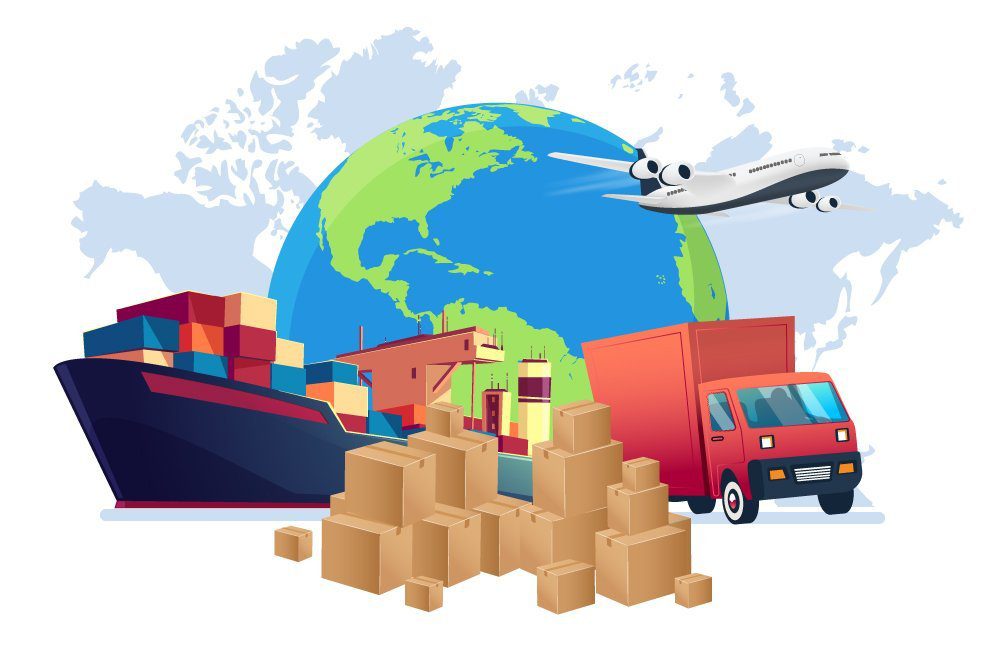The World Bulk Wine Exhibition takes place in Amsterdam on November 20 and 21 under the theme of ‘Where Wine Brands are Born…” It’s also where so much wine of the world’s wine is bought and sold.
The bulk wine market has developed radically in the last 15 years, and is now at the forefront of industry development from producer to end user, in every sector of the business, from supermarkets and cash & carries, to on-trade groups, independents and regional wine merchants. As Helen Arnold reported for The Buyer last month, bulk wine now accounts for over 34% of global wine sales in terms of volume, although value is tellingly much lower at 7%, as expected. But even the value of bulk wine is changing, as my research discovered.

Bulk wine’s grip on the world wine market tightens every year
Twenty five years ago, I was at the helm of the wine buying team of Somerfield, then the fourth largest supermarket in the UK. At a time when supermarket wines were just starting to make a powerful imprint on the UK market, I was brought in (from Safeway) to revitalise the Somerfield range and create a better range and reputation for a lacklustre, and quite frankly, dull wine selection.
This was at the time when Somerfield was transitioning from the equally unglamorous Gateway, probably the most downmarket supermarket at the time. Volumes were large; but all entry level. Almost everything was shipped in bottle, bar the very bottom end, and bag in box.
Those were the heady days of the 1 million cases per annum of Bulgarian Cabernet Sauvignon sales in the UK; the days of the famed ‘BOGOF’ ( buy one get one free) offers. Somerfield ran one of the first half price offers on the newly launched own brand Australian red and white for Christmas in the early 2000s. I think the single order was around 300,000 cases; I know that at the time, it was Penfolds’ (as the UK company was then known) largest order.That order was shipped in bottle; today that would not be the case.
From bottle to bulk
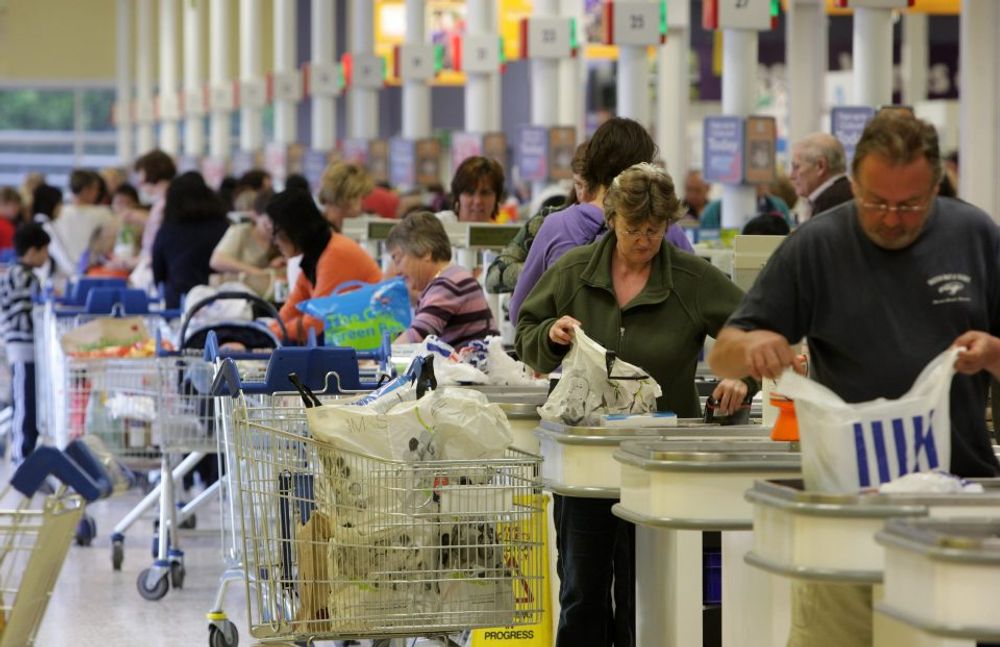
So much of the wine now passing through supermarket tills will have been shipped and bottled in the market where it is being sold
Why do I mention this? Because the vast majority of under £4 wines in the nineties, and up until the first decade of the 21st century, even at that lowly entry level, was shipped in bottle. Back then, and even till relatively recently, bulk wine, or wine bottled in the UK (in this case) was viewed as being of inferior and unreliable quality. Fifteen years on, the market has changed beyond recognition; the bulk market is now critical to the entire industry, allowing off-trade, brand owners, and the on-trade to deliver exclusivity, points of difference, and hit key price points.Let alone the benefits of cost savings and the focus on sustainability.
Today the industry, the logistics, the thinking behind the logistics, the needs of the consumer, let alone the focus on sustainability, have ensured that the perception and importance of this sector of the market has changed beyond recognition. Why is this? I talked to retailers and producers to see how this sector has become mainstream.
The significance of the move of the bulk market into the mainstream is probably best illustrated by the fact that almost every supermarket buyer I spoke to for this feature, will be attending this week’s World Bulk Wine Exhibition in Amsterdam in late November, as will brand owners, producers and importers, from all over the world. Many also attended last week’s IBWSS (International Bulk Wine & Spirits Show) that took place in London.
Last year the list of exhibitors at WBWE featured over 220 wineries, from 24 different countries, and attracted over 6,000 global visitors.The new motto of the WBWE is ‘Where brands are born’. Cristina Miranda, marketing director for WBWE, explains why: “The WBWE is a fair where foundations are laid; this is where all the stories begin, a place where professionals come with an open and creative mindset to develop concrete brands with a consumer focus. The show provides the unique opportunity to explore the best of the world’s harvest in two days in a single location, taking business to the next level; it also helps crystallise emerging trends.”
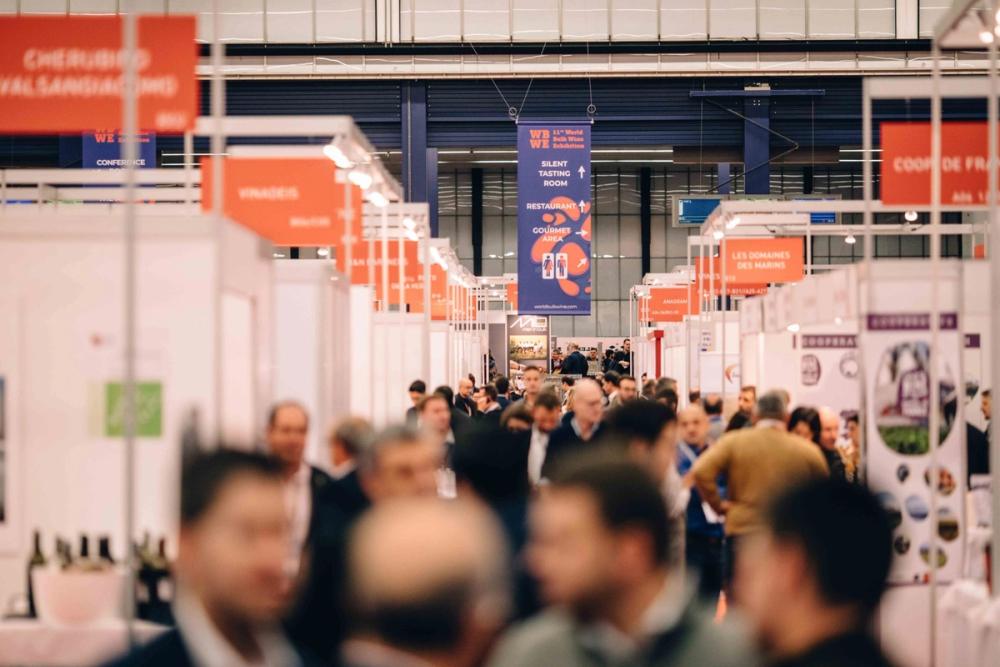
WBWE is all about doing business with sales and negotiations taking place on all the stands at the show
The exhibition has lined up an impressive programme of seminars and panel discussions, featuring high calibre and experienced industry stalwarts such as Barry Dick MW, of Waitrose, Simon Mason, head of sustainability for The Wine Society, Johan Arno Kryger, of Hans Just Group, Interpunkt’s Andrew Ingham, Amelia Dales from Packamama, and Club Soda’s Laura Willoughby.
Key areas of focus and seminar topics include specific sessions on formats and alternative packaging; the hot topic of sustainability; the importance of the bulk market in Canada, and reaches as far as opportunities for bulk in the growing no/lo sector.
Miranda also highlighted three of the main highlights for this year’s show. “The alternative packaging revolution has started, and the WBWE is the best place for entrepreneurs who want to be involved in this alternative business, from formats and canned wine, to paper and flat bottles, most of which are extremely eco-friendly.”
She also highlighted the focus on the no/lo sector, which is currently showing the fastest growth in the drinks sector, and, in her words appealing to “new generations who are asking for alternative types of beverages”. “We are looking at the world of dealcoholized wine, and how this new sector of low and no alcohol wines can be a business niche for their bulk wines,” she adds.
Turning point
The views of UK buyers, and importers, in all sectors, largely concur with the key themes, albeit with inevitable variations in the focus they individually put on bulk shipping. Producers vary in opinion; some embrace the move towards UK bottling; others fight to re-enforce the importance of bottling at source, in order to support local economies.

Waitrose’s Barry Dick MW will be sharing his insights into how important the bulk wine market is to major retailers at WBWE
I discussed the change in importance of the bulk wine market with a number of key retailers, who all seemed to be providing similar messages. Several of the experienced buyers have witnessed many changes in shipping and logistics over the years, as I did, and firmly embrace the benefits of bulk shipping.
Cost-efficiencies, sustainability, carbon footprint, and, almost most importantly, the crucial matter of availability and replenishment at store and depot level, are the salient factors in influencing buyer decision-making on this subject.
“I’m afraid I can remember the bulk market in its infancy, when it was just poor quality, entry level wines,” says Clive Donaldson, director of beverages at IPL, the wholly owned direct sourcing division of Asda. “But increases in technology of transport and UK bottling facilities have delivered big changes in wine quality, and have thus enabled a huge expansion from entry products to own brand, and more premium levels. Most major brand owners have switched some or all of their bottling to the UK.”
Edward Robinson, wine buyer at the Co-op, agrees: “The quality of wines shipped in bulk is immeasurably better than it used to be even 10 years ago – and customers can taste it in the glass. Whilst only about 14% of our range is bottled in bulk, bulk comfortably accounts for a large proportion of our overall sales.”
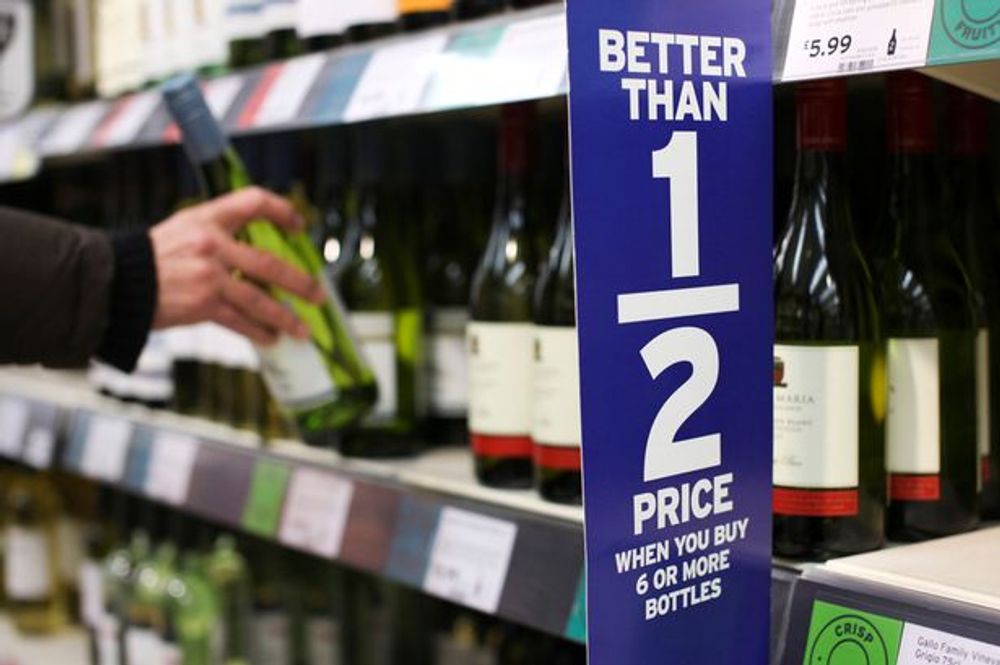
UK supermarkets will continue to look to bulk wine to hit key price points in face of big duty increases
The key issue of availability is another reason for the retailers to favour bulk. Barry Dick MW, bulk sourcing manager for Waitrose, pointed out the ultimate logic for bottling in UK: “Any supply chain efficiencies are becoming increasingly important in a highly competitive category like wine, so any model that encourages packing close to the centre of gravity of your customers becomes compelling.”
Put quite simply, if there is an unforeseen run on stock, holding bulk in UK allows swift replenishment, often day one-day three, rather than a protracted period of time shipping deep sea, thus avoiding perilous out of stocks and customer dissatisfaction. I, and many junior buyers were taught the mantra ‘Never out of stock ever’, using the vaguely threatening acryonym ‘NOOSE’.
Bulk on the rise
Mark & Spencer is also seeing the shift in importance, anticipating that volumes of wines shipped in bulk, will increase by 40% at M&S this year, accounting for almost 25% of all wines. Over at Asda the proportion of bulk- shipped own brand is also around 25%, whilst UK bottled brands account for over 50% of total sales.
Mark Roberts, director of sales at Lanchester Wines, part of the Lanchester Group that own Greencroft Bottling, summarised two of the key benefits of bulk shipment.
“The cost savings, both monetary and sustainably, are undeniable. A flexitank containing 24,000 litres will fit a 20ft container, whereas the same volume in bottle would require two 40ft containers. With this comes a significant win on the environmental front, with CO2 savings of around 37%, which is around 2kg of CO2 per km travelled.”

Beyond Wines’ Alex Green says bulk wine gives retailers control over their supply, pricing and distribution
Alex Green, co-founder of Beyond Wines, also points out the benefits to retailers, in that bulk shipping is key to creating consistent own brand ranges with a central, local, production point, allowing them to control packaging, quality and price.
What retailersmust also ensure to do, in his opinion, is to take their customers on the journey with them,and be aware that the quality of bulk wine is on a par with wines bottled at source. Given the low proportion of customers who read much of the back label, this is unlikely to cause much furore in supermarkets at least.
Being sustainable
Cost efficiencies are clear, and crucially important in this increasingly competitive and beleaguered market – duty rates, exchange rates, cost of living crisis, transport costs, let alone competition from other drinks categories, as fickle consumers switch drink styles.
However, the single word most frequently mentioned, by all those to whom I spoke, was ‘Sustainability’.
All retailers agree that bulk shipping benefits their published stances on sustainability strategies, by reducing carbon footprint considerably directly and simply. As Barry Dick says: “The fact this is not a customer-facing change, means that it is one of the least complicated solutions, making it even more compelling.”
Green points out that with a sustainability-focussed customer base, retailers can no longer pay lip-service, but must ‘walk the talk”.

The Lanchester Group’s Durham facility is one of the most sustainable and environmentally leading operation of its type in the world
Uk bottlers have come a long way since the early days of bulk shipment; at the Lanchester Group, sustainability is at the forefront of everything – £13million has been invested in renewable heat and energy generation at its site in Durham, and its business is powered almost completely by renewable wind and solar energy.
The removal of glass weight from the supply chain is another salient benefit, and recent retailer tastings showcased an increased number of wines in lighter weight bottles. At Lanchester, 99% of all bottles used at Greencrofft bottling are already at under 420g, in accordance with the Bottle Weight Accord, in which producers are pledging to reduce glass weight to below 420g by end of 2026.
Key suppliers are doing the same. Kim Wilson, managing director, of North South Wines, supplies large volumes to supermarkets, and understands their complex needs.
“We are definitely working on reducing our overall glass weight as part our B Corp targets,” she said.
Impact of bulk

Kim Wilson of North South Wines says it is working hard to balance the sustainability argument of bulk wine with the impact it has on domestic employment and not bottling locally
However, there is a counter-argument to the bulk shipping debate, as a benefit to sustainability, as some importers and producers will argue. Wilson explains: “We drive our sustainability charter in the right way. If you start packing everything in the UK, that is then not sustainable for the countries that produce the bulk, as it takes jobs away from the packing lines etc. Some of these countries need this more than the UK’.
This is also a factor supported by Simon Mason, head of sustainability at The Wine Society, which is making big strides to embrace bulk wine. He told last week’s IBWSS conference that it has even set itself an “aspirational” target of importing up to 40% of its wine in bulk in the coming years and bottling in the UK as part of its ambitious targets to drastically reduce its carbon impact. A move, he says, could cut its carbon footprint by 1.5% alone, which might not sound a great deal, but is highly significant compared to other carbon-reducing steps you can take.
Another advocate for bottling at source for sustainability reasons is Bernard Fontannaz, chief executive of Origin Wines based in South Africa, who highlights a highly logical but very important point.
“Much is made of saving the planet, and rightly so, but as relevant, if not more, is the need to save the people living on the planet. As such, bottling at origin creates employment, especially in countries with high unemployment and radical poverty issues, such as South Africa and Argentina.”

Bernard Fontannaz says more debate has to be had about how bulk wine and the sustainable impact it is having in wine producing countries such as South Africa
Over at Asda, Donaldson is pragmatic and measured: “Every product should be looked at, on its own merits, and the best production process chosen. I don’t think doing anything by default is the best solution.”
This is reflected in the Wine Society’s stated and cautious decision-making process also.
Whilst sustainability at source, organic and also Fairtrade are key focus areas for the industry, bulk shipping does not preclude these. The Co-Op is at the forefront of the Fairtrade movement across numerous categories. Ed Robinson confirmed that South Africa was one of the most important categories, shipped in bulk, and is highly confident about the quality of wine shipped. It does not impact on the company’s Fairtrade credentials.
Similarly, Gerhard Van der Watt, at the Bulk Wine Centre in South Africa confirms that much of its bulk business is not only WIETA and IPW certified but also Fairtrade.
Tim Lang, of import, distribution and logistics company Peter Igel In Canada, who ship in around 10 million litres of bulk per annum, says there is a big focus there on organic as well as bulk wine. He explains: “There is an increasing demand for organic wine in bulk, but the challenge is to ensure that organic certification is maintained all the way through the supply chain.”
Bulk trends
What trends are buyers and importers witnessing, and which countries are performing best for bulk?The majority of buyers and producers see the focus and the majority of benefits from deep sea shipping. Market dynamics dictate that an increasing amount of stock needs to be held in the UK, as retailers watch cashflow and seek optimum availability. UK replenishment helps on both fronts.
Therefore it is logical to focus efforts on prioritising bulk from South Africa, Australia, South America and New Zealand, although problems with shipping routes during the pandemic caused major supply issues for some of these.
Thomas Holliday, trading manager at M&S, confirms more and more regions are now open to exporting bulk, and are now far better equipped.
Donaldson at Asda stresses the dynamic and fluctuating nature of the ever-changing market. “We see swings between the countries of origin based on exchange rates, shipping costs and harvest conditions.”
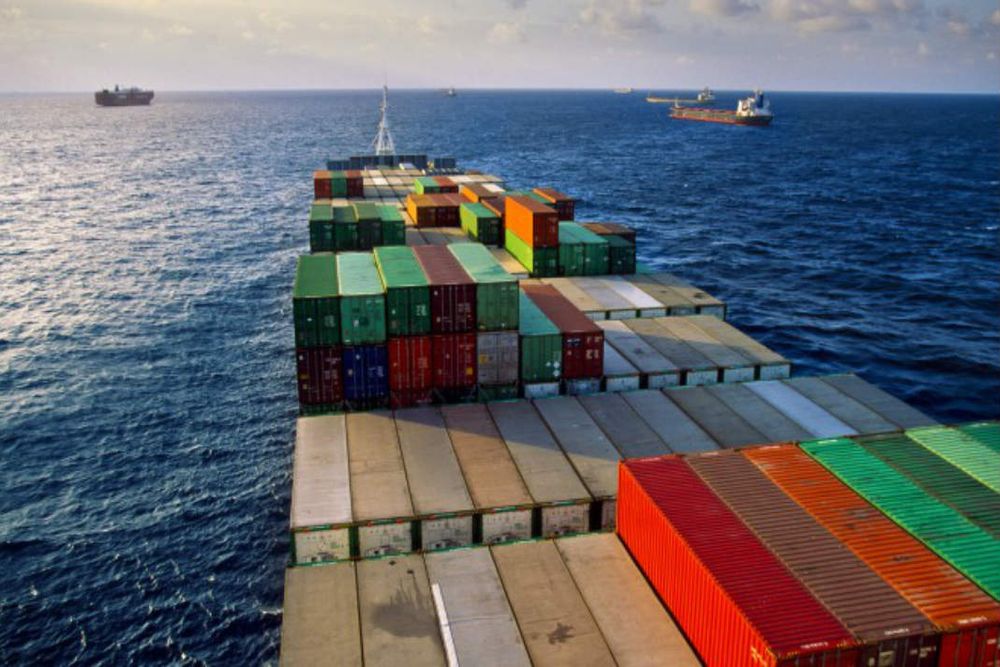
Shipping wine in bulk particularly from the southern hemisphere now makes sense for an increasing number of retailers, wholesalers, distributors and on-trade operators
North South Wines is looking to move its Australian and New Zealand lines, currentlypacked in Europe, to UK packing, due to the new rules on CCT, which will offer significant savings on the more entry level wines, whilst also getting the product closer to the end user.
But it’s not just deep sea. Alex Green says it was seeing considerable growth from countries like France and Italy, who have adapted well to current trends in order to maintain their competitive edge, whilst keeping their values of quality and tradition.
Moldova is now also a country, on which supply is focussed; quality is high, price are good, and if there is access to the correct logistics, it’s possible to export through Romania.
Premium bulk
One major trend is the move to more mid-tier wines, being shipped in bulk. M&S’s Holliday says; “The continued premiumisation of bulk wine is great for enabling us to offer customers that signature M&S quality.”
Lanchester’s Roberts believes bulk shipping can mean wine, at whatever level, arrives in better condition. “Shipped in bottle, with journey times of up to nine weeks, climatic conditions can be extreme with temperature fluctuations from 7- 32 centigrade fluctuations. Shipping in bulk means the variation of the wine’s temperature is vastly reduced compared to bottle.”
There is now a natural evolution towards more premium wine brought over in bulk, he adds.
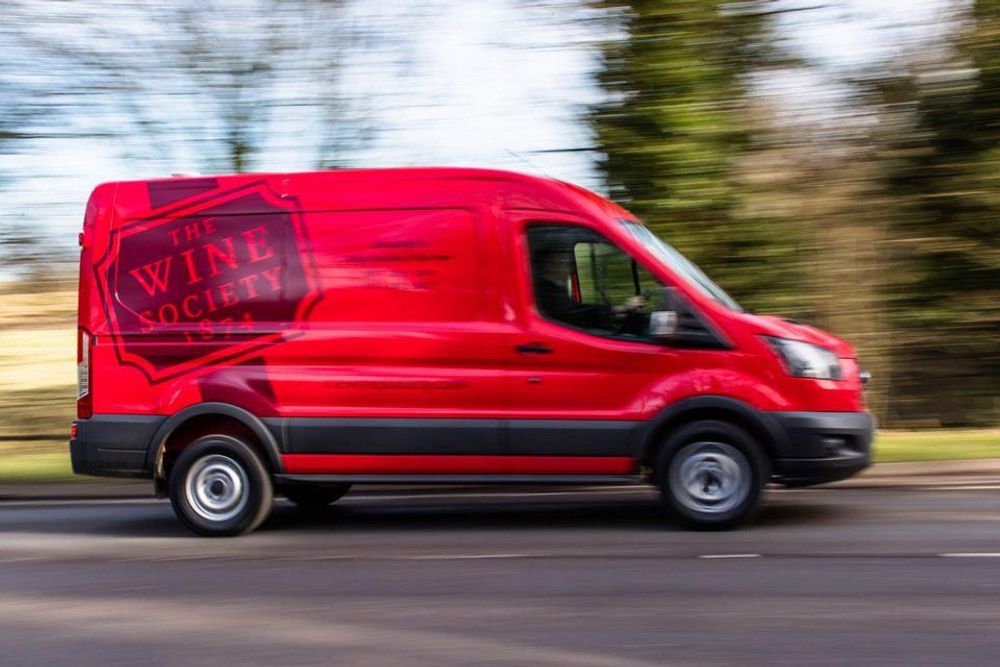
The Wine Society is looking to make big inroads into bulk wine with “aspirations” of switching up to 40% of its supply to bulk to help its reach ambitious carbon footprint goals
The Wine Society, with its arguably more traditional customer base, is also watching carefully.“Currently we list bulk shipped wines from the New World, although these are relatively small. We have carried out successful trials, shipping 1000lt bulk containers, for our alternative packaging trials, and even producers who aren’t typically handling bulk shipments, have been able to fill them without difficulty. The challenge is now to work up the best way to scale up to mid bulk volumes of around 8000lts,” says Mason.
He also has this message for UK bottling companies: “Whilst UK packers are increasing in number and capacity, it would be great for more packers to look at that mid bulk volume, as that would open up more options for us, thus allowing us to look at bulk shipping lower volume, higher price point wines, which is what makes up much of our range.”
Alternative formats and packaging are further trends, which are benefitting from bulk shipment. The market is seeing a marked move towards alternative packaging, from pouches, and paper bottles, to cans, most of which carry reclycable credentials. Bulk shipping enables the same wine to be packed into various formats, from glass, to minis, to cans, to BIB.
As Donaldson points out, bag in box has a shelf life, it needs to be packaged as close to its market as possible, so bulk is critical.
The Canada factor
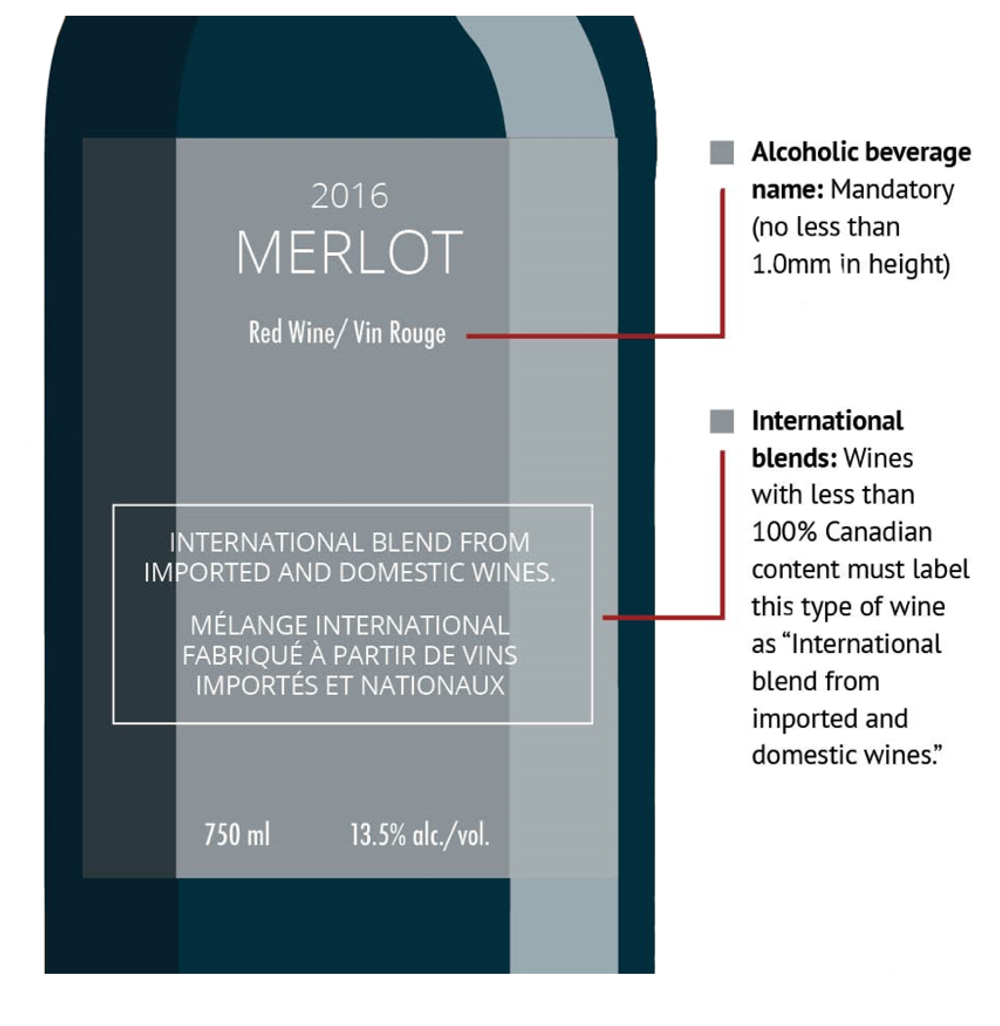
The International Domestic blend category in Canada which allows wines to be made using a percentage of both Canadian wine blended with imported wine – similar rules are now being introduced in the UK
Visitors from certain countries could be forgiven for wondering why Canada features high on the list of ‘hot topics’ amongst the WBWE’s seminar programme. Canada is a massive market for bulk from all over the world, due largely to the importance of the IBDs (International Domestic Blends) category.IBD wine is a blend of a minimum 25% Canadian wine, blended with imported wine from any country of origin.
Tim Lang, of Peter Igel, based in Ontario, explains: “IBD has been created by the Canadian government to stimulate and protect the Canadian wine industry. There isn’t enough growing capacity ( or quality) to satisfy demand, so this category facilitates the juice going further, allowing the growers to sell their harvest, and augments the overall quality.”
Currently IBD wines account for over 30% of all Canadian wine consumption. “Price is key in this category, therefore the country of origin will often change according to market forces and geopolitics,” says Jenny Radcliffe-Wright, bulk wine buyer for Peter Igel. “Shipping is also an important factor – if a particular shipping route becomes expensive or difficult to access, it becomes prohibitive to buy wine from that country.”.
In market blending
My final question was about the recent changes in duty on alcohol levels, together with the recent DEFRA announcement regarding blending in market, and how this might impact on buyer decisions in terms of bulk shipping. With less alcohol, the wine is more exposed and sensitive to oxidation, but many consider that, with careful handling, this brings further opportunities for the streetwise importer.
Barry Dick sees bulk shipping of lower alcohol wines following the same logic from a commercial and sustainability point of view, but there will be technical considerations involved.
“The real art is to make sure we don’t lose any wine integrity in the process,” says Roberts.
This could mean interesting wines at between 8% and 10% that taste like real wine. However retailers like M&S recognise the need to be cautious in order to protect the quality of their range above all.
Fontannaz fears that there is a risk of dilution of wine quality, which could in fact hurt the bulk market, with some more wine-knowledgeable consumers prioritising bottled at source in order to guarantee quality’.
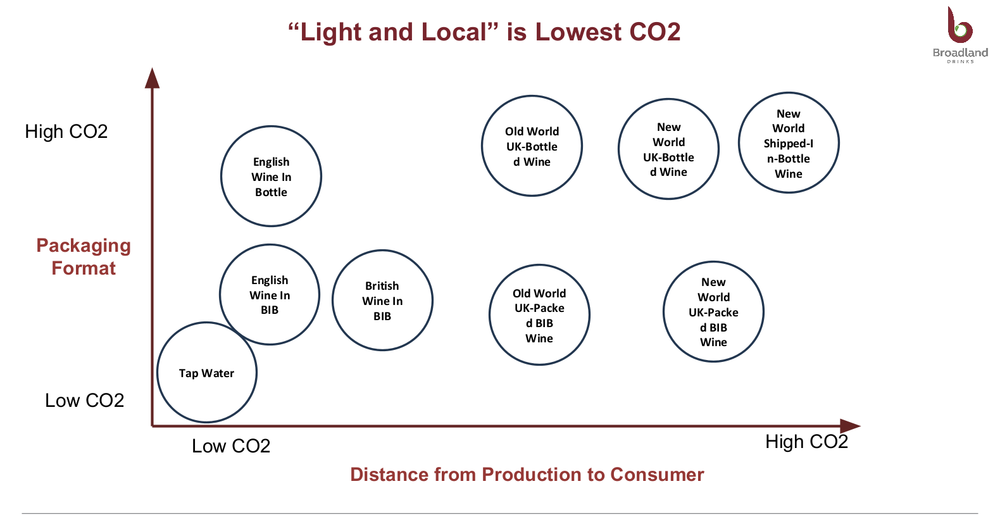
Switching supply to Light and Local is the way forward for parts of the wine industry says Broadland Drinks’ Mark Lansley
The potential impact of the new DEFRA proposed legislation in 2024 will inevitably cause concern in many areas of the industry, with the ability to put, for example, a Chardonnay on the shelves ( largely supermarkets) blended from a variety of countries. Does the average shopper, only interested in a decent bottle of affordable wine, really care? Can the wine be good? What does this do the UK burgeoning wine industry?
Alongside this, the change in rules regarding alcohol levels of what can and can’t be called a wine will change, therefore how does that impact on the very meaning and representation of ‘real’ wine. The announcement was made too recently to have given retailers and importers the chance to absorb and digest, especially during the frantic run up to Christmas, but will be a topic for much consideration and debate next year.
But noticeably Mark Lansley, chief executive of Broadland Wineries, and Andrew Porton, head of wine at the Lanchester Group, told this week’s IBWSS that they see the new in market blending regulations as offering “big opportunities” for UK bottlers.
Lansley, in particular, is excited about the potential it offers, particularly around promoting what he sees as the “big switch to Light and Local” wines. Be it through the growth in English wine, but also the a re-focus on British wines that has long been a key part of Broadland’s business, particularly wine made from concentrate combined with the ability to blend and carbonate still wines in the UK.
It might keep the purists awake at night, but for business entrepreneurs like Lansley it opens up a whole new “world of opportunity”.He says the rule changes means the sector can stop “burning fossil fuels” and shipping so much wine around and focus on what is possible to be made in the UK. That’s the only ways he sees the UK wine industry being able to half its overall carbon footprint by 2030.
Amsterdam calling

It’s time to get down to business at WBWE in Amsterdam this week
It means it is the ideal time for buyers and importers to be heading to Amsterdam for this year’s pivotal WBWE. A chance to consolidate relationships and explore new opportunities and take advantage of all these market changes, whilst at the same time check out the latest innovations in packaging and discover new producers to work with, especially in the New World.
Beyond Wines’ Alex Green is pragmatic: “We need to look for wines from alternative varietals or countries, which hit interesting price points, that over-deliver on quality. We need to find wines that consumers want, not what we want to sell them.”
Buyers like the “no frills” nature of WBWE where everyone is there to do business. The chance to build on existing supplier relationships and develop new ones.
Bulk shipping will continue to be a hot topic in the Industry, with its supporters and adversaries. But the juggernaut that is the bulk market is certainly driving forward.
Lanchester’s Roberts neatly sums it up neatly: “Perhaps it’s actually us in the trade, who need to embrace the ideas, in order to catch up with customer demand.”
Or as Asda’s Clive Donaldson succinctly puts it: “All wine is bulk before it’s bottled (bottle fermented sparkling the exception). Plenty of wine is shipped between wineries and sites in country of origin throughout the winemaking process, and as finished wine. I think a lot of fuss is sometimes made about the final bottling step.”
- You can find out more about this week’s WBWE at its website here.
